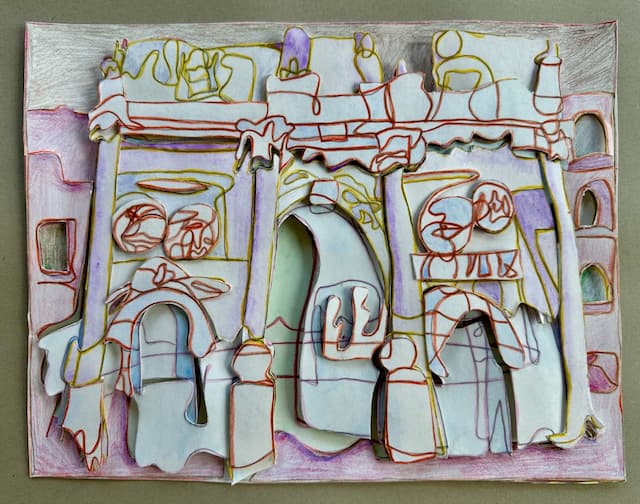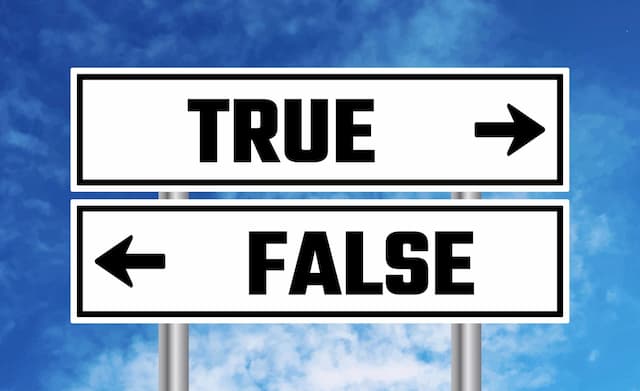Zechariah’s hope of kingdom restoration (Zechariah 1–2)
Prophets like Zechariah delivered God’s promise to restore his kingdom after the exile. What they said informed Jesus’ kingdom ministry.
Jesus was not the first to proclaim the kingdom of God. That was already Israel’s story when God anointed David to rule on earth, and when God established Israel as his nation at Sinai. It was the hope for the nations promised to Abraham. It was the covenant God made with all people through Noah. By design, humans exist as images of the heavenly sovereign in his earthly creation.
What was unique was Jesus’ vision of how the kingdom of heaven would be restored to the earth. There was a whole history of getting off-track in the generations of Adam, Noah, Israel, and David. Then it completely fell apart when Babylon took the nation into captivity, destroying the symbols of God’s kingship: the house of God (with the ark that represented his throne), and the house of David (the anointed kings who that represented his reign).
So, how did Jesus envision the restoration of God’s reign? In part, his kingdom vision was shaped by the promises God gave through the prophets, particularly Zechariah.
God’s reign
Almost 70 years after the exile, people began returning to Jerusalem to rebuild. That’s when Zechariah began declaring visions of the restored kingdom. He said that God had scattered them among the nations, but God would gather them and reign over them again. Jesus’ kingdom vision is full of echoes, allusions, and quotations from Zechariah.
The returning exiles felt that God had rejected them, giving them over to foreign rule. But the word of the one who rules all (YHWH of hosts) was this: Return to me, and I will return to you (Zechariah 1:3). It was a call to literal return, and to behave differently to their ancestors (1:4-6).
Matthew says that Jesus was God returning to his people: God with us (Matthew 1:23). So, when God finally came to his people, did they respond better than their ancestors? They were worse, rejecting Jesus just as their ancestors had rejected the prophets, specifically Zechariah (Matthew 23:30-36).
God’s house
The Lord declared, I will return to Jerusalem with mercy, and there my house will be rebuilt (Zechariah 1:16). God’s house was the palace they built for their Sovereign to live among them and lead them (Exodus 26–40). When David offered to build God a more permanent house, God responded by establishing the house of David — his anointed rulers in perpetuity. Together, the temple (house of God) and the kingship (house of David) represented God’s reign over his nation (2 Samuel 7).
The destruction of these twin symbols (temple and kingship) represented the loss of God’s rule over his people. Zechariah’s promise of the rebuilding of God’s house is therefore a symbol of YHWH’s return to reign over his people.
This temple was dedicated to YHWH around 516 BC. This second temple (with centuries of maintenance and refurbishment) was the one Jesus visited on his triumphal entry. But it had ceased to be God’s house, where they could approach his throne for help. It was occupied by robbers (Matthew 21:13), and what these gangsters were about to do to him was worse than their ancestors. That’s why God had left the house (23:38), guaranteeing that it would suffer the same fate as the first temple (24:2). That would be a time of great distress (24:15-28), but God’s kingship would be restored in him (24:30; 26:61; 27:40).
God’s man gathering his scattered flock
The exile had decimated God’s kingdom. As if wild animals had attacked and gored God’s flock, they were now scattered among the kingdoms of the world (Zechariah 1:18-21). Zechariah was God’s voice, proclaiming the sovereign’s call to gather his people as a rebuilt kingdom under his governance (2:1-5). The God who scattered you to the four winds of heaven (2:6) was leading an Exodus-like escape from Babylon (2:7) through the Moses-like leader he would send to his people (2:8-9, compare Deuteronomy 18:15).
Zechariah was proclaiming the gospel of the kingdom — the good news of God gathering his scattered people back into his kingship: “Shout and be glad, Daughter Zion. For I am coming, and I will live among you,” declares the Lord (Zechariah 2:10).
And it’s more! To release Israel from the nations, YHWH’s reign must extend to managing the nations also, just as YHWH demonstrated his authority over Pharaoh (Exodus 4:21-22; 5:1-2; 6:13, 29-30; 8:1 etc). The new Moses therefore transforms the earth, bringing the nations under God’s reign:
Zechariah 2:11–12 (NIV)
11 Many nations will be joined with the Lord in that day and will become my people. I will live among you and you will know that the Lord Almighty has sent me to you. 12 The Lord will inherit Judah as his portion in the holy land and will again choose Jerusalem.
Matthew understands Jesus as this Moses-like figure, establishing God’s kingdom as Moses did: resolving their captivity (Matthew 1:17), leading the promised exodus (2:15), bringing the kingdom near (3:2), overcoming the enemy in the wilderness (4:1-11), leading the exiles out of darkness (4:12-17), proclaiming and enacting the good news of the kingdom beyond the borders (4:23-25), leading the people to the mountain to hear the word of the Lord (5:1), fulfilling the Law for his people (5:17), calling them to enact God’s heart for the benefit of nations (5:43-48). Like Moses delivering the Law of the Lord, Jesus declares that obedience to him is obedience to God (7:24-29). He has authority over uncleanness (8:1-4), foreign forces (8:5-13), diseases of his people (8:14-17). He has authority to release from everything that overwhelms us: natural disaster (8:23-27), spiritual enslavement (8:28-34), and the sin that cripples us (9:1-8).
Jesus leads as the new Moses. He warns the disobedient (11:20-24). He is lord of the Sabbath (12:1-14), the servant of YHWH (12:15-36). He provides bread in the wilderness (14:13-21). The new Moses redefines what defiles (15:10-20), the boundaries of the covenant (15:21-39), the assembly that gathers around God (16:18-19), and the way to the kingdom (16:21-28). His face glowed as he met God on the mountain (17:1-3). He redefined life under God’s reign (Matthew 18–19), setting up twelve leaders for God’s people (19:28). He redefines Passover as the new covenant (26:17-29). The Torah concludes with Moses dying on the mountain (Deuteronomy 34), but Matthew concludes with Jesus alive on the mountain, commissioning the twelve to bring the nations into his enduring presence (28:16-20).
Conclusion
Well, that’s just the first two chapters of Zechariah’s vision for kingdom restoration. I hope you can see that it’s not a matter of Zechariah predicting what Jesus would do, but of Jesus being the fulfilment of God’s enduring promise to gather his scattered flock from among the nations and bring the nations under God’s reign.
To understand the gospel according to Jesus (the good news of the kingdom) we need to hear the kingdom announcements of the prophets like Zechariah. This is the foundation for what Jesus was doing, the story he was living, and the surprising way he expected to re-establish earth as a kingdom of heaven.
Open Zechariah.
What others are saying
Mark J. Boda, The Book of Zechariah, NICNT (Grand Rapids, MI: Eerdmans, 2016), 43–44:
While Haggai focuses on the physical restoration of the temple with a concluding hope for restoration of Davidic royal rule, Zechariah places priority on a covenantal renewal that will ensure an even broader restoration of the physical infrastructure (temple, city, province), material prosperity (city and province), communal leadership (priestly, royal, prophetic), and global impact (the nations). …
The language and content of the book of Zechariah shaped the future vision of the early church, creating expectation of the ultimate destination of history and the role of God, his people, the nations, and all creation in the last days (e.g., Rev. 11:1–14; 22:1, 5). …
The vision for restoration seen within the book reveals Yahweh’s commitment to renewal that transcends material renewal and seeks for deep spiritual and relational renewal. All of this is only possible, as we discover in the New Testament, through the sacrifice of Jesus and the gift of the Holy Spirit.
Related posts
- The Moses connection
- The fall of the Jerusalem temple (Mt 24:15-28)
- Our king among us (Mt 1:22-23)
- Jesus fulfils what? (Mt 2:13-15)
Seeking to understand Jesus in the terms he chose to describe himself: son of man (his identity), and kingdom of God (his mission). Riverview College Dean
View all posts by Allen Browne








